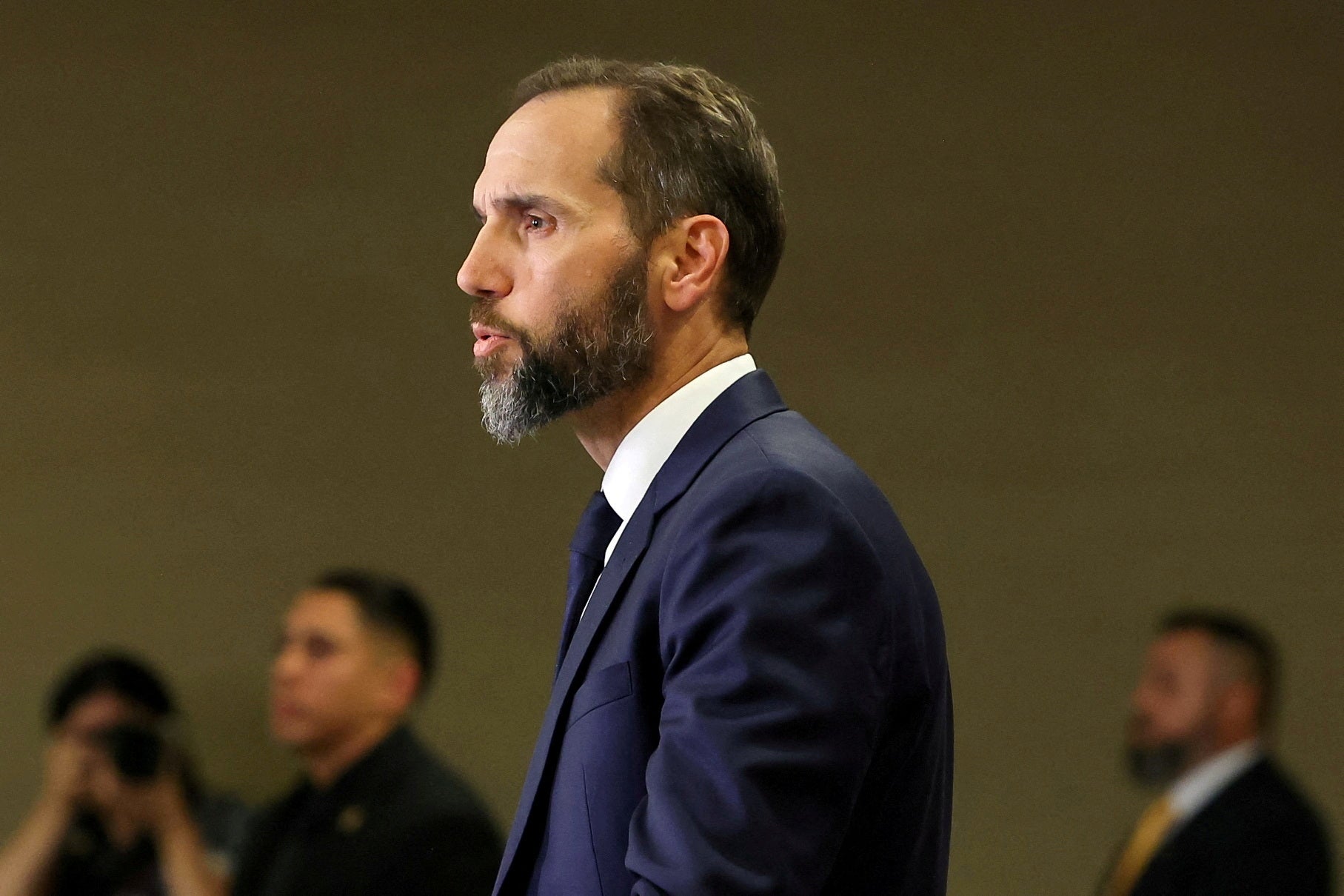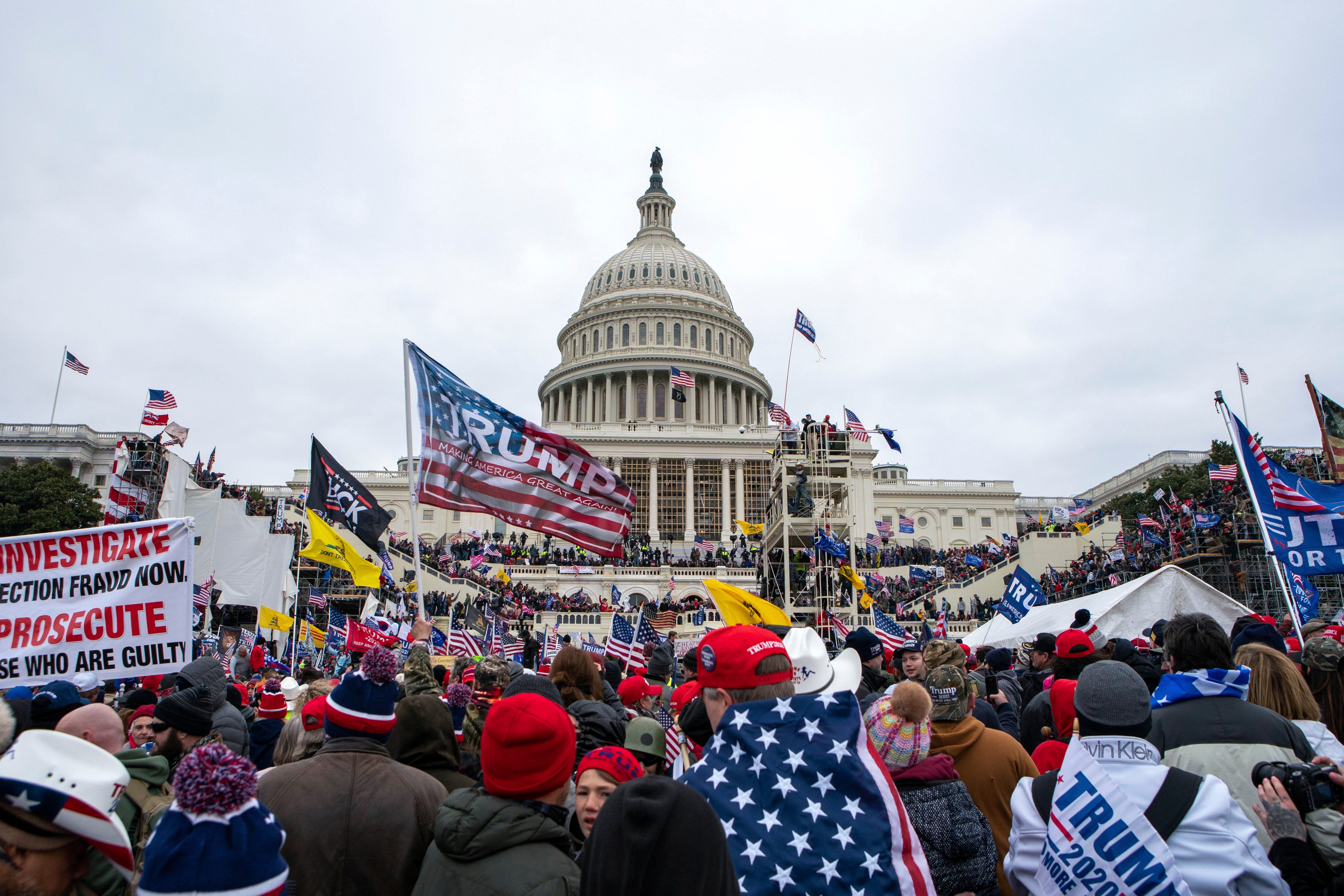A federal appeals court ruled Thursday that the Department of Justice can release a report on Donald Trump’s efforts to overturn his 2020 election loss.
But a Trump-appointed judge’s order temporarily blocks special counsel Jack Smith’s report for up to three more days. Trump can now ask the Supreme Court to intervene
It wasn’t immediately clear whether Trump would appeal the appellate decision to the top court. His spokesperson Steven Cheung said that it’s “time for Joe Biden and [Attorney General] Merrick Garland to do the right thing and put a final stop to the political weaponization of our Justice system.”
Garland has promised to publicly release Smith’s highly anticipated final report from his investigation into the president-elect’s efforts to subvert the outcome of the 2020 presidential election.
Smith delivered his completed report to Garland on Tuesday, according to Justice Department lawyers. But it remains unclear when, exactly, or even if a report can see the light of day, with just 10 days remaining before the president-elect returns to the White House.
The report consists of two volumes: one includes Smith’s findings from a years-long probe into Trump’s efforts to reverse his election loss, and the other involves Trump’s handling of classified documents at his Mar-a-Lago compound.
But a court order from Trump-appointed District Judge Aileen Cannon temporarily blocked the entire report from being published while the parties make their arguments to a federal appeals court.
Smith dropped Trump as a defendant in the Florida case, but a case against Trump’s longtime employees Waltine Nauta and Carlos De Oliveira could still go to trial. They asked appellate judges to block Smith’s report from being published altogether.
Cannon’s order had temporarily blocked the Justice Department from releasing both volumes, despite Nauta and De Oliveira having nothing to do with the special counsel’s January 6 case, which played out in an entirely different courtroom with a different judge in Washington, D.C.
Trump’s attorneys asked Cannon to block “any aspect” of Smith’s report, which would “result in irreparable harm” against him, if released, they wrote.
They argued that the election interference case “pertained to a time period” when Nauta and De Oliveira were Trump’s employees, and releasing that report would be “inconsistent with the presumption of innocence” against them and a long list of other Trump allies.
His attorneys also said Garland should fire Smith.
Federal prosecutors told the federal appeals court on Wednesday that the Florida judge “could not properly have issued” a “nationwide injunction” that prevents Smith from his work in other jurisdictions.

Neither case made it to trial, and Smith effectively closed both cases after Trump’s election victory. Last July, Cannon also tossed Trump’s Mar-a-Lago case, arguing the special counsel was unconstitutionally appointed and funded.
But there is “no appointments-based reason to doubt” Smith’s authority to draft a report and hand it to the attorney general under the Justice Department’s own regulations, attorneys wrote on Wednesday.
The Justice Department has agreed that Garland will not publicly release Smith’s report on the classified documents investigation while the case against Trump’s co-defendants remains pending, according to federal prosecutors.
But “in light of congressional interest in the work” of the special counsel, a redacted version of the Mar-a-Lago report will be made available to members of the House and Senate judiciary committees, they wrote.

Trump’s co-defendants in the Mar-a-Lago case have “no cognizable interest” nor any other justification or legal basis for blocking Smith’s entire report, according to prosecutors.
There is “no risk of prejudice to defendants and no basis for an injunction” against Garland by limiting the release of a partially redacted Mar-a-Lago report to members of Congress, prosecutors wrote.
“This limited disclosure will further the public interest in keeping congressional leadership apprised of a significant matter within the Department while safeguarding defendants’ interests,” they added.
Justice Department attorneys said a decision to deny attempts to block the porter should be the “last word” on the issue — unless the Supreme Court weighs in.
Justice Department attorneys declined to comment to The Independent. A spokesperson for he agency toldThe Independent there is “no additional information to provide at this time.”
This story was first published on January 8 and has been updated with developments







